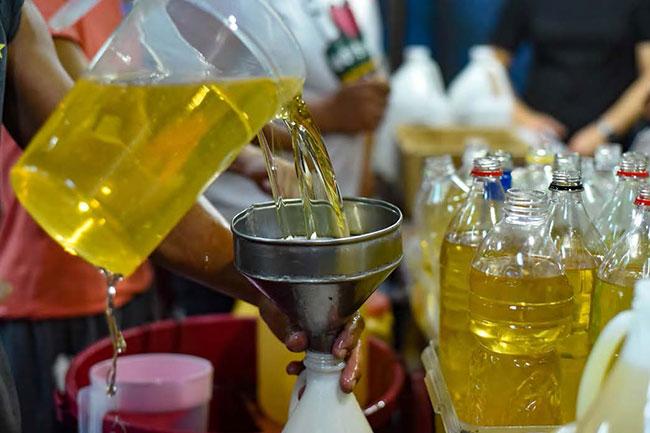
The World Health Organization is urging countries to eliminate industrially produced trans-fat (TFA), from the global food supply by 2023, due to its link to heart disease and death.
Industrially produced trans-fat are contained in hardened vegetable fats, such as margarine and ghee, and are often present in snack foods, baked foods, and fried foods. Manufacturers often use them as they have a longer shelf life and are cheaper than other fats.
Consumption of industrially produced TFA is estimated to cause around 500,000 deaths globally per year due to coronary heart disease.
In Tonga, 1.71 % of coronary heart disease (CHD) deaths is due to TFA intake. In the US it is 7.57% and in Switzerland it is 2.89%.
Since WHO’s call to action in May 2018, 58 countries have so far introduced laws that will protect 3.2 billion people from the harmful substance by the end of 2021.
Tonga
But more than 100 countries, including Tonga, still need to take actions to remove these harmful substances from their food supplies.
“In a time when the whole world is fighting the COVID-19 pandemic, we must make every effort to protect people’s health. That must include taking all steps possible to prevent noncommunicable diseases that can make them more susceptible to the coronavirus, and cause premature death,” said WHO Director-General Dr Tedros Adhanom Ghebreyesus.
“Our goal of eliminating trans fats by 2023 must not be delayed.”
He said TFA can be completely eliminated and replaced with healthier oils and fats without changing the taste or cost of food.
Dr Tom Frieden, President and CEO of Resolve to Save Lives said with the global economic downturn, more than ever, countries are looking for best buys in public health.
“Making food trans fat-free, saves lives and saves money, and, by preventing heart attacks, reduces the burden on health care facilities.”
WHO recommends that trans-fat intake be limited to less than 1% of total energy intake, which translates to less than 2.2 g/day with a 2,000-calorie diet.
There are 15 countries that account for around two thirds of worldwide deaths linked to trans-fat intake.
Four of these countries (Canada, Latvia, Slovenia, United States of America) have implemented WHO-recommended best-practice policies since 2017, either by setting mandatory limits for industrially produced trans fats to 2% of oils and fats in all foods or banning partially hydrogenated oils (PHO).
However, the remaining 11 countries (Azerbaijan, Bangladesh, Bhutan, Ecuador, Egypt, India, Iran, Mexico, Nepal, Pakistan, Republic of Korea) still need to take urgent action.

Trans Fats
Eating trans fats increases your risk of developing heart disease and stroke. It’s also associated with a higher risk of developing type 2 diabetes, according to the American Heart Association.
Trans-fats raise your bad (LDL) cholesterol levels and lower your good (HDL) cholesterol levels.
There are two broad types of trans fats found in foods. One is naturally-occurring fats which are produced in the gut of some animals and foods made from these animals such as milk and meat products. They may contain small quantities of these fats.
The second is industrially produced or artificial trans fats (TFA) that are created in an industrial process that adds hydrogen to liquid vegetable oils to make them more solid.
The American Heart Association recommends using naturally occurring, unhydrogenated vegetable oils such as canola, safflower, sunflower or olive oil most often. Examples of foods that may contain trans fat include doughnuts, cookies, crackers, muffins, pies and cakes.





